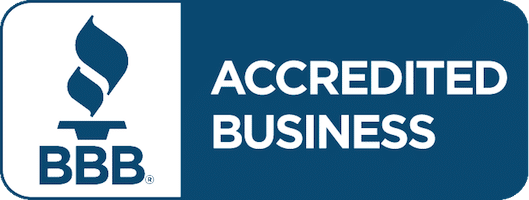Best Medical Alert System Companies

#1

- Since 1974, LifeCall is an American company with a long history of providing excellent monitoring services and efficient emergency alert systems to health care facilities catering to the elderly and individuals for use both indoors and on the go all over the United States.
#2

- ADT Medical Alert is among the leading service provider of Mobile-Personal Emergency Response Systems (MPERS) technology in the U.S. ADT Medical Alerts provides efficient and reliable Medical Alarm System Monitoring that provides help quickly and efficiently when you need it.
#3

- MobileHelp offers its users high-quality and affordable medical alert solutions for your protection that gives you complete peace of mind while you’re at home or away.
Lifestation Medical Alerts Review
Today, medical alert systems have become indispensable for elders with health problems and seniors living alone. It is an easy and quick way to get help in the case of an emergency, be it a medical problem, a fire, a fall or any situation that needs an immediate response. Medical alert systems have a help button when pressed calls an emergency response center and help is dispatched immediately.
With LifeStation, you can find a medical alert system that fits your lifestyle the best and you can also customize your system according to your needs.
overview
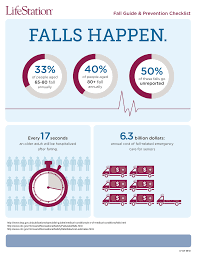
Lifestation History
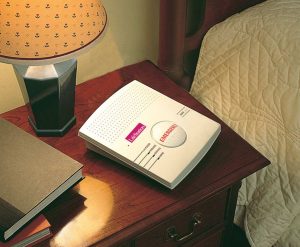
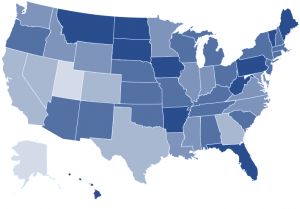
LifeStation is an excellent and affordable medical alert solution if you’re looking for a simple, no-frills device that does not have long-term contracts and also offers your money back in 30 days. The alert service is backed by reliable monitoring, the product selection is very easy and so is the setup. The product offering of LifeStation is very simple and it has 3 main medical alert product options:
- A traditional in-home (required a landline) system
- A cellular in-home (does not require a landline) system
- Mobile and GPS

So, how does the LifeStation medical alert system work? You must subscribe to one of the LifeStation plans and set up the medical alert system. Both the At Home systems i.e. landline and cellular, have base console units with microphones and loudspeakers which allow 2-way communication. When you press the help button on the base unit or the portable help button, while you are being connected to the monitoring center, an alarm will sound.
Once you are connected to the response center, you can make use of the 2-way hands-free audio to tell the care specialist if you need help, if you are testing the system or have pressed the button accidentally. If you do not answer or are unable to answer when the representative comes online, then the monitoring center will alert your caregiver or family member or call emergency in case you need help.
You can wear the medical alarm button as a wristband or a pendant and you can also use the device both inside or outside your home and this works in the same manner as the in-house alert systems, i.e., when you press the button on the pendant, it will connect you to the monitoring center. The medical alert device has voice capabilities and an enhanced speaker, which allows you to communicate with a care specialist at the monitoring center.
If you are not able to speak, then the center will follow your customized emergency plan and contacts emergency services, family and friends in the order that you have requested. And, the care specialist will remain with you on the line until help arrives. LifeStation also has an Alert Message service, where automatic email notifications are sent to the caregiver in case of an emergency or if you test your medical alert system or have any problems with it.
Every week, the medical alert systems are automatically tested to ensure that they are working properly and will work in the event of an emergency. If there is a problem like if the power cord or the phone line is disconnected, then LifeStation will contact you and alert you about the problem. Apart from the automated testing, LifeStation recommends that users press their emergency buttons and make test calls every month to ensure that the system is working properly. These test calls also help the senior user to become comfortable with the emergency alert process.
Products Offered By Lifestation
In Home Traditional
Features
- Requires a landline phone
- Base station
- 2-way speaker
- Water-resistant button
- Battery Backup: 32 hours
- Coverage Range: 600 feet
- Lightweight home pendant
- Fall detection (extra)
Pros
- The home pendant is very lightweight and weighs less than ½ ounce.
- The home pendant never requires charging.
- Most affordable medical alert system.
Cons
- Does not have carbon monoxide or fire alerts
- Limited range

In Home Plus
Features
- Uses the AT&T cellular network
- Base station
- 2-way speaker
- Water-resistant button
- Battery Backup: 32 hours
- Coverage Range: 1,000 feet
- Lightweight home pendant
- Fall detection (extra)
Pros
- Setup of the system is very easy
- Easy to use
- Does not need a traditional landline phone
Cons
- Does not have carbon monoxide or fire alerts
- The range could be better
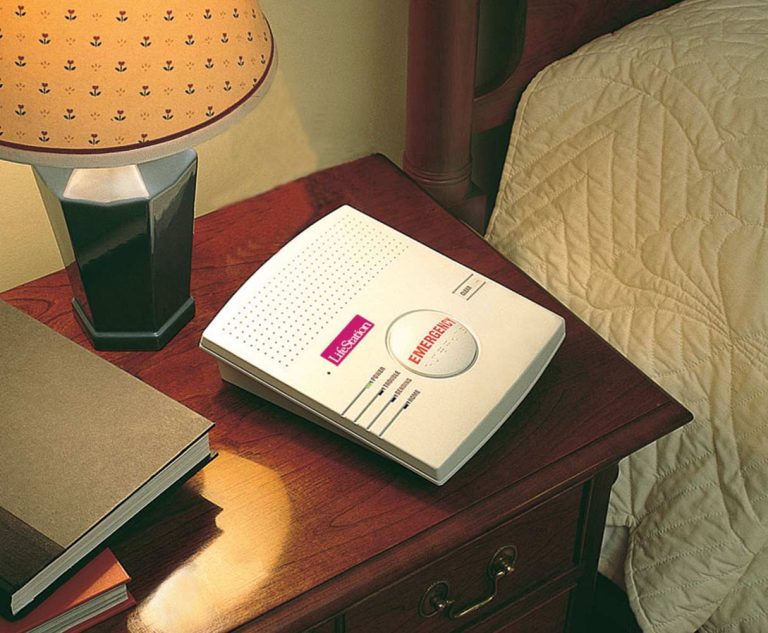
Mobile + GPS
Apart from the In Home medical alert systems, LifeStation offers the Mobile + GPS premium pendant, which is ideal for seniors who spend a lot of time outside their home. The Mobile + GPS cellular medical alert system allows you to stay connected to the monitoring center even when you’re on the move and access help in the case of an emergency.
If you need help, all you need to do is press the emergency button, which will connect you with a LifeStation care specialist 24×7 and the device does not have any range restrictions. And, you make an emergency call from anywhere in the country, as long as there is a good cellular network connection. The Mobile + GPS device has an embedded microphone and speaker that allows you to communicate with the care specialist.
And, if you are not able to communicate with the agent or you don’t know your location, then the mobile device allows identification of your location accurately in the event of any emergency by transmitting the GPS & WiFi (WPS) information. The WPS system is an upgrade over GPS tracking alone and allows determining the location of the user more accurately. This location information can be retrieved by the family and caregivers by sending an SMS to a number which is linked to the user’s account.
The “Find My Loved One” feature offered by LifeStation offers assurance to caregivers and families of the user who want to know the location of the user. The Mobile + GPS system is also compatible with an Alexa skill that can help to locate the user at any time. The battery of the device gets charged very quickly and in just 3 hours, the device will get fully charged. On a full charge, the Mobile + GPS system can last for around 5 days and this is significantly longer when compared to other similar devices in the same category. This longer standby time is of great convenience to users and allows them to keep their device charged and ready for use at all times.
Features
- Mobile with GPS
- Works on the cellular network
- 2-way speaker
- Water-resistant button
- Weight: 2 ounces
- Compatible with Alexa
- Battery Life: 5 days after 3 hours of charging
- Range: Unlimited
- Fall detection (extra)
Pros
- Extended battery life of 5 days
- No range restrictions
- Very handy device
- Easy to set up
- The speaker of the mobile device is very clear
Cons
- The device does not hold a charge for a long time
- The signal is not very strong
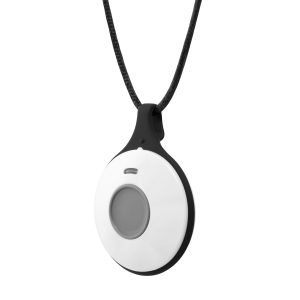
Costs
In Home Traditional
The LifeStation In Home plan starts at $25.95 per month.
In Home (No Landline)
The fee for the In Home Plus can be paid monthly, quarterly or annually. The details for this system are not available on LifeStation’s website and to know the cost and details for the In Home Plus system, you can call the LifeStation reps.
All the In Home Traditional and In Home Plus plans include free medical alert equipment, free shipping, free emergency button, free necklace and wristband attachments and 24×7 monitoring from UL listed and certified care specialists.
- Monthly: $29.95 per month
- Quarterly: $27.95 per month
- Annually: $25.95 per month
Mobile + GPS
The fee for the Mobile + GPS can be paid monthly, quarterly or annually. The details for this system are not available on LifeStation’s website and to know the cost and details for the Mobile + GPS system, you can call the LifeStation reps.
The plans include free “Go Anywhere” medical alert equipment, free shipping, location with WiFi and GPS, low activation fee, “Find My Loved One” feature, compatibility with Amazon Alexa and 24×7 monitoring from UL listed and certified care specialists.
- Monthly: $29.95 per month
- Quarterly: $27.95 per month
- Annually: $25.95 per month
Additional Options
LifeStation also offers additional options for users at an extra fee such as:
Lock Box
This is available at a cost of $2.99 per month. The Lock Box option allows the caregivers of the user and emergency responders to access your home in case of an emergency and you’re unable to answer the door.
Hallway & Bathroom Help Buttons
LifeStation provides extra help buttons for users for easy access in the event of a fall or any other emergency. Hallway and bathroom help buttons are useful when you remove your personal help button. These are an easy way to ensure that you are safe and get assistance in case of a problem. You can place these emergency buttons in your bedroom, bathroom, hallway or any other location you want. The cost of additional help buttons is:
- 1 Button: $3.49/ month
- 2 Buttons: $3.29/ month (each)
- 3 Buttons: $2.99 / month (each)
- 4 Buttons: $2.79 / month (each)
- 5 Buttons: $2.69 / month (each)
- 6 Buttons: $2.49 / month (each)
Additional User
If you need an extra help button which allows another person in your home to use the LifeStation medical alert system, then the cost for this is an additional $3.99 per month.
LifeStation does not require you to sign any long-term contracts with them. You can cancel your subscription at any time. There are no termination fees; however, the company does not refund any prepaid fees. If you want to cancel your subscription, you must send the equipment back to the company and give an advance notice of 30 days to cancel.
Irrespective of the payment plan you select, LifeStation provides a 30-day money-back guarantee and the company does not charge any hidden fees. The 30-day guarantee allows you to test out the service and equipment and decide if it works for you. However, once the 30 days are over, LifeStation does not offer any refunds on the prepaid amount.
Summary
Irrespective of whether you’re looking for an in-home medical monitoring and alert system or you need it when you’re outside your home, you can depend on LifeStation to provide a completely user-friendly and dependable service at an affordable cost. The range of LifeStation’s devices come with a service which does not need you to enter any long-term contracts and also offers the ease of canceling your subscription if you no longer need the service. However, despite users finding that outdoor range of the portable help button is limited, overall, the easy-to-use service, its affordability and dependability makes LifeStation a good option to consider.
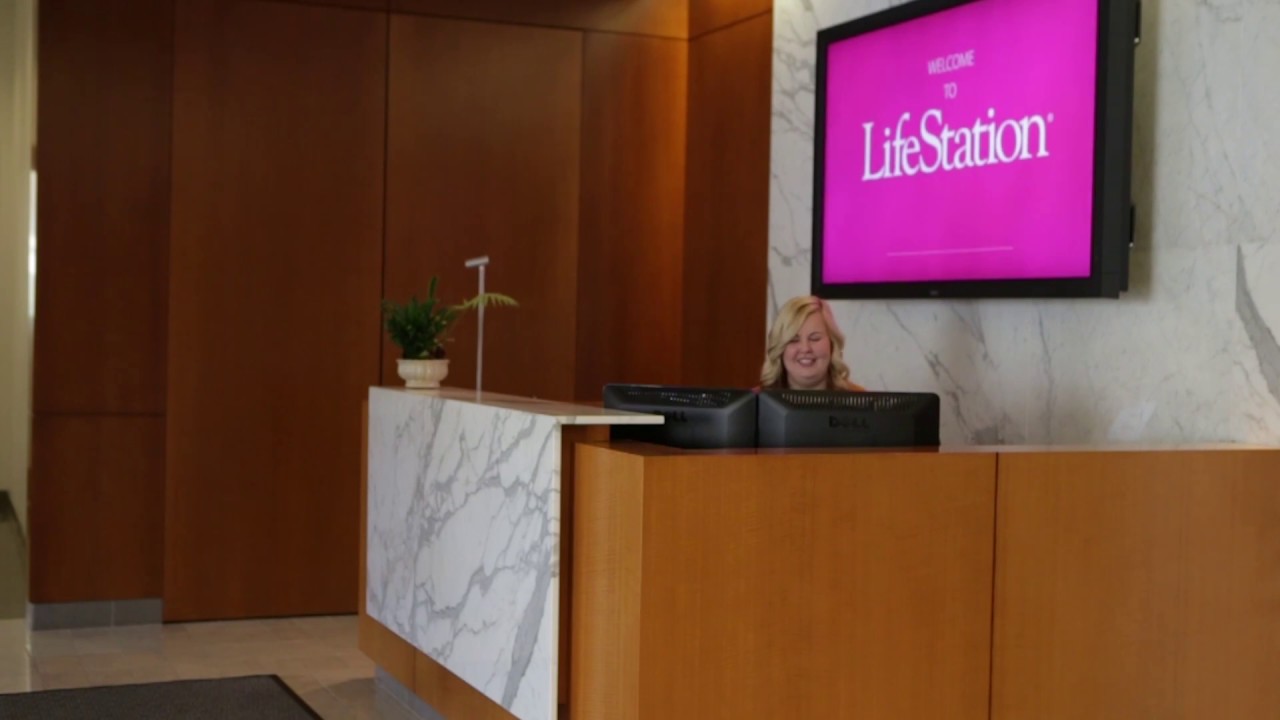

Medical Alert Bracelet For Breast Cancer Patients: Essential Information for Emergencies
Read More

Medical Alert Watch With No Monthly Fee
Read More

Why Seniors Living At Home Need a Medical Alert System
Read More

Activities of Daily Living: A Comprehensive Guide to Maintaining Independence
Read More
Sponge Bath: Bed Bathing Seniors
Read More

Read More






